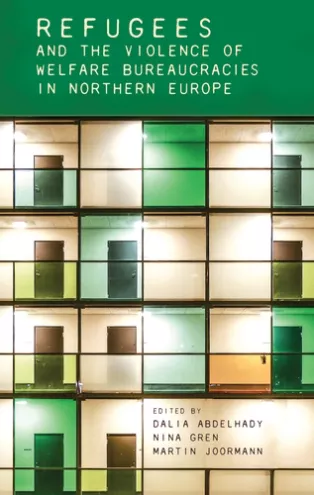In 2015, the number of asylum seekers arriving in the EU doubled from the previous year, totalling at over 1.3 million. Most came from war torn countries like Syria, Afghanistan, and Iraq. A significant share set out for the welfare states in Northern Europe. Germany, the largest country in the EU, processed close to 500,000 asylum claims. Denmark received 21,000 refugees – three times as many as in 2013. More than 160,000 individuals sought refuge in Sweden, whose asylum laws were arguably among the most generous in the northern hemisphere.
Asylum systems in many European countries were unprepared for the influx of protection-seeking people. In the Swedish border city Malmö, a convention centre set up as a waiting hall quickly turned into a substandard, makeshift dormitory. “There was an insane amount of people in a very small space,” says a Lund University alumnus who started working at the Swedish Migration Agency in the fall of 2015. “One family’s sleeping pads and blankets would overlap with those of the family next to them. A lot of people there were sick and some were throwing up.”
In some instances, caseworkers at the Swedish Migration Agency worked around the clock to register all new asylum cases. “My general impression was that it was chaotic at the agency,” the Lund University alumnus says. “In the archive, for example, where all the applicants’ dossiers were kept, there was a plastic box on the floor with passports and other identity papers that had been misplaced or fallen out of dossiers.”
“More akin to a panic attack than a refugee crisis, the book’s three countries of focus in Northern Europe suddenly perceived themselves as being threatened by a large inflow of unwanted bodies that they were not prepared to receive and manage,” the editors write in regard to Germany, Denmark, and Sweden implementing passport controls at their respective southern borders. They call it re-bordering, in reference to pre-Schengen border controls, and point out that it can be considered an act of refusal to receive those fleeing suffering.
“[T]he receiving states largely encountered those groups of people on the move as embodying high levels of risk that had to be mitigated through various mechanisms. The assumption of risk triggered the desire to control the flows of people and control the individuals who embodied the perceived risks. When control and discipline became seemingly unattainable, the sense of crisis took over public discourses and policy environments triggering exaggerated responses that were camouflaged under the term ‘refugee crisis’”.
To deal with those perceived risks, the Northern European welfare states passed a number of significantly more restrictive laws targeting protection-seeking individuals. For example, Denmark, having one of the EU’s most conservative asylum policies, passed a “jewellery law”, enabling authorities to confiscate refugees’ belongings valued above 10,000 Danish kroner. Meanwhile, the Swedish government decided to withhold permanent residence permits for all asylum seekers other than those resettled through the UN, granting only temporary residence with stricter requirements for family reunification.
In addition to policy responses, the anthology explores migrants’ experiences of dealing with state institutions and the harsh effects these experiences have on their lives. The authors discuss the ways bureaucracy, as one central theme, is used to control and intervene in the lives of its subjects to “exhaust” them and accept a subordinated position within the host country. Making people wait indefinitely is discussed as one such strategy. Another topic is the discrepancy between the harsh realities of the asylum process, integration programs, and the xenophobic discourses in Northern Europe, and the generally positive assumptions among refugees of wealthy, welcoming welfare states.
Refugees and the Violence of Welfare Bureaucracies in Northern Europe is a collaboration within the Faculty of Social Science at Lund University, and edited by Dalia Abdelhady (Centre for Middle Eastern Studies and Department of Sociology), Nina Gren (Department of Sociology, Division of Social Anthropology), and Martin Joormann (Sociology of Law Department).
The book will be published by Manchester University Press in September of this year. Thanks to funding made available by the Centre for Middle Eastern Studies and The Lund University Library, a digital edition will be available open access this summer.
The book for free at manchesteruniversitypress.co.uk
Read more about Martin Joormann's research on his personal page.




